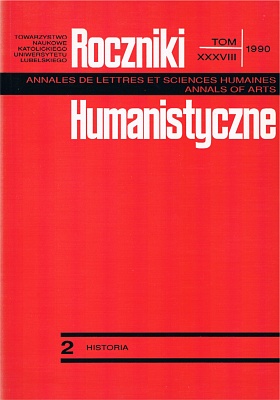Prussians in the Forces of Varmia Bishopry in the Middle Ages
Abstract
The role which Prussians played in mediaeval Varmian society depended to a great extent of their military value. That is why their greatest importance falls on the 14th century when the Varmian domain, whose economy and civilisation developed then, needed protection against the Lithuanians’ invasions. They were also obliged to send armed contingents for the campaigns launched by the Teutonic Order. For both purposes they used mainly natives who at that time came partly within the system of Prussian law. This brought about the formation of a separate social group of free Prussians who fulfilled most of all military functions. The people who belonged to other social groups in Varmia were also conscripted for military service, especially the owners of small and big estates due to Chełmno law. In the course of time also village administrators and peasants from Chełmno villages were called up. Out of 374 individual obligations to military service in the cavalry unit which were imposed on the recipients of land endowments until the end of the 14th century, at least 280 (more than 75 cent) concerned Prussians. Apart from that there were group obligations which to a large extent fell upon the representatives of this ethnic group, e.g. the dependent people in the bishop’s, capitular, and knight’s estates. The role which Prussians played in Varmian army was considerably reduced in the 15th century, due to the crisis on the territory of the Teutonic State, which crisis came as a result of war defeats. This crisis was a great disadvantage for the group of free people who were politically and economically weak. One can assume that the fact that Prussians lost their importance was one of the reasons why Prussians were gradually losing the characteristics of a separate ethnic group.
Copyright (c) 1990 Roczniki Humanistyczne

This work is licensed under a Creative Commons Attribution-NonCommercial-NoDerivatives 4.0 International License.





